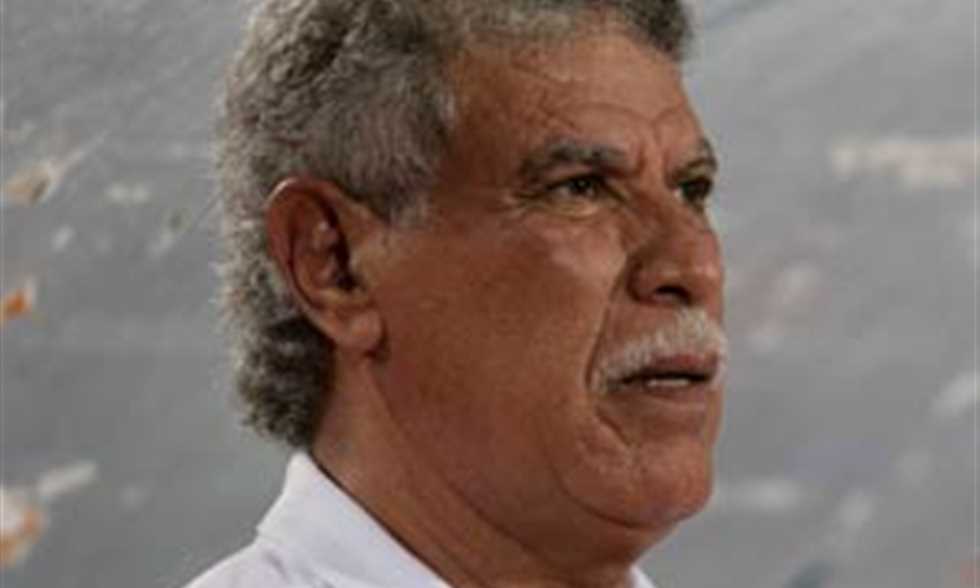
كتب : حاتم ماهر | الثلاثاء، 12 أكتوبر 2010 - 06:24
Shehata's immunity

Shehata got his faire share of plaudits after masterminding Egypt's glorious era that saw him lead the team to unprecedented three consecutive African Cup of Nations titles.
He was given the credit he deserves by people and media alike but the past few months saw him remonstrate angrily with any critic questioning some of his decisions.
He apparently believed that he should be immune from criticism after his huge success at the helm but he needs to change his stance following the team's embarrassing 1-0 defeat at Niger in the Nations Cup qualifiers.
His mistakes cost a star-studded Egypt side what should have been a very easy victory over Niger, who are ranked 154 in the world by FIFA.
He surprisingly deployed Mahmoud Fathallah as a sweeper in his 3-5-2 formation although the Zamalek man has been playing as a central defender since joining the Cairo club three years ago from Ghazl Mahalla.
Hani Saied, a natural sweeper who excelled in that position during Egypt's triumphant Nations Cup campaigns in 2008 and 2010, was surprisingly left on the bench despite his ability to close down spaces behind the two central defenders.
Saied is also capable of building counter-attacking moves, unlike his Zamalek teammate Fathallah who looked lost as a libero, leaving gaps in his area and putting central defenders Wael Gomaa and Sherif Abdul-Fadil into repeated troubles.
Shehata's controversial choices continued when he decided to field Ismaili's inexperienced striker Ahmed Ali alongside Amr Zaki.
Both are similar in their combative style, leaving little room for creativity upfront. Ali was a peripheral figure throughout the game and Zaki, with no assistance from his teammates, struggled to replicate his fine form of late.
When Egypt fell behind to a surprise goal that exposed the team's defensive fragilities, Shehata decided to make three substitutions in the second half.
Just one of them was useful - the introduction of ENPPI playmaker Walid Soliman whose pace and dribbling skills helped Egypt pile on pressure although the Pharaohs still struggled to create clear-cut opportunities.
The presence of the other two substitutes was barely felt because they should have not been called up to Egypt's squad from the very beginning.
Strikers Mohamed Fadl and Ahmed Mekki, who play for Ahli and Harras Hodoud respectively, neither have the attributes of prolific frontmen nor the sufficient skills to go deeper and carve out some space for themselves.
Shehata also strangely left forward Ahmed Eid out of Egypt's 18-man squad for the game although the Harras Hodoud forward could have made the difference when Egypt were in dire need of spark against a determined Niger side.
The 61-year-old will be naturally under fire in the next few days as Egypt risk the unthinkable prospect of missing out on a place in the Nations Cup, which they won a record seven times.
He should accept that and try to improve the weak aspects of Egypt's game rather than accusing the media of undermining his achievements.
مقالات أخرى للكاتب
-
The mysterious Shikabala saga الأحد، 14 نوفمبر 2010 - 23:22
-
Shehata's immunity الثلاثاء، 12 أكتوبر 2010 - 06:24
-
Sacking Al-Badri not an option for Ahli الإثنين، 13 سبتمبر 2010 - 10:13
-
Dear Standard, please punish Meteb السبت، 14 أغسطس 2010 - 17:10
نرشح لكم

 الاقتراب من المرمى خطر.. الفيزياء تشرح سبب إهدار كايد تسديدة العقرب عكس جيرو
الاقتراب من المرمى خطر.. الفيزياء تشرح سبب إهدار كايد تسديدة العقرب عكس جيرو

 هادي رياض: حققت حلم الطفولة بالانضمام للأهلي.. ورفضت التفكير في أي عروض أخرى
هادي رياض: حققت حلم الطفولة بالانضمام للأهلي.. ورفضت التفكير في أي عروض أخرى
 أيمن أشرف يعلن اعتزال كرة القدم
أيمن أشرف يعلن اعتزال كرة القدم
 تقرير تونسي: الإفريقي رفض التعاقد مع كهربا رغم راتبه الضئيل
تقرير تونسي: الإفريقي رفض التعاقد مع كهربا رغم راتبه الضئيل
 وكيله: هادي رياض تنازل عن جزء من أمواله للانضمام لـ الأهلي
وكيله: هادي رياض تنازل عن جزء من أمواله للانضمام لـ الأهلي

 "نريد إغلاق الملف".. مصدر من الأهلي يرد عبر في الجول على اعتذار إمام عاشور
"نريد إغلاق الملف".. مصدر من الأهلي يرد عبر في الجول على اعتذار إمام عاشور

 كسر سلسلة الهزيمة.. الاتحاد السكندري يفوز على حرس الحدود
كسر سلسلة الهزيمة.. الاتحاد السكندري يفوز على حرس الحدود

 كان قد اقترب من عام.. أفشة يعود لصناعة الأهداف أمام حرس الحدود
كان قد اقترب من عام.. أفشة يعود لصناعة الأهداف أمام حرس الحدود
















































